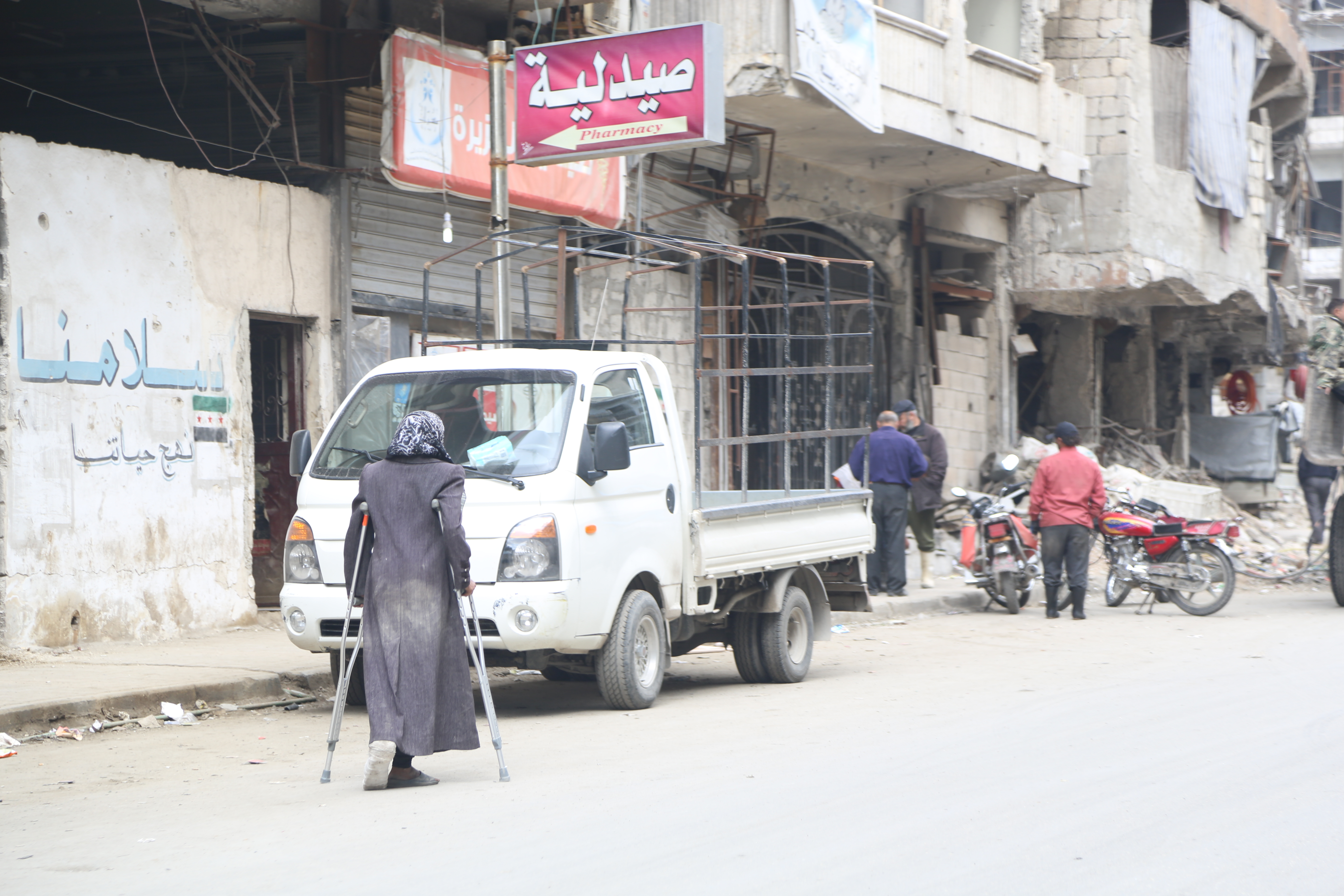Escape Through the Back Door

Abdel Qader Badran Street is one of the main streets in Douma, and it is a focal point for raids by government forces.
My home is in this street, in a three-floor building occupied by my husband’s extended family. The main entrance looks onto Abdel Qader Badran Street, and a small back door opens into an alleyway.
One day in June 2012, I woke up with a feeling of foreboding. Somehow I knew that the daily round of attacks would be worse than usual.

My husband was away on business that day, my elder daughter was sleeping at the hospital where she worked, and my son had gone out to work the previous day and had not come home yet. My only companion was my younger daughter, busily studying for her high-school exams.
On an impulse, I asked my neighbours to gather at my home, and I was joined by my elderly mother-in-law and my two brothers-in-law, one of whom came with his wife Sawsan and two young children, while the other, who is visually impaired, came alone.
I unplugged our landline and we sat together quietly. We could hear a tank approaching, and we were afraid another security sweep was coming. We tried to remain as calm as possible. Sawsan even managed to get her children to sleep.
By midday, we were beginning to grow restless, especially my mother-in-law. We could hear groups of soldiers moving around on the streets outside, and we were worried.
All of a sudden, a volley of bullets was fired at our building. The children woke up, terrified. Sawsan quickly covered their mouths for fear that they would shout out.
Towards five in the evening, the world outside fell silent. I reconnected our telephone and called my son Khalil.
“Don’t panic, mother,” he said, “The security forces are trying to take control of Douma. I’ll be home tonight and I’ll get you out through the back door”.
I then called Tawfiq, my brother-in-law who lives in Germany, and explained what was happening. I told him how many of us were inside the building. I also described our clothes in detail, as I wanted him to have some information about us in case we were arrested or killed.
Finally, I tried calling my daughter at the hospital, but I was unable to get through.
I went to the kitchen and collected whatever food I could find to feed my hungry guests, and then I sat down to recite verses from the Koran in a low murmur. I was doing my best to calm everybody down.
As night fell, the streets outside remained silent, but we were becoming more fearful. The children became restless and Sawsan scolded them harshly, although they had done nothing wrong.
My mother-in-law complained that she was hungry, but I had no food left. I was worried she would suffer a hypotension episode, and I started to fall apart. I felt responsible for them all and I couldn’t keep them calm. I had no option but to wait for Khalil.
At around ten at night, I heard a whisper that filled my heart with joy, “Mother, mother”. Khalil had come for us.
Carrying his grandmother, he told his uncle and aunt to carry one child each, and my daughter to take her blind uncle’s hand. We sneaked out of the back door to the neighboring alley, and got into a car that took us to my sister’s house.
When she opened her door, I fell into her arms weeping. I was no longer able to hold it together.
Obeida al-Doumiya is the pseudonym of a Damascus Bureau contributor from Douma, Syria.
